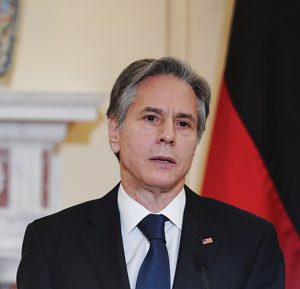Bloomberg
Secretary of State Antony Blinken stepped up the Biden administration’s sharp rhetoric against Russia ahead of talks meant to ease tensions over Ukraine, accusing Moscow of using military threats, disinformation and targeted killings to build a sphere of influence beyond its borders.
“No one should be surprised if Russia instigates a provocation or incident then tries to use it to justify military intervention hoping that by the time the world realizes the ruse, it’ll be too late,†Blinken told reporters. “The idea that Ukraine is the aggressor in this situation is absurd.†The top US diplomat’s remarks were in keeping of what he and other administration officials have said in recent weeks and offered a fresh signal that the US isn’t going to offer major concessions — in tone or substance — when senior American and Russian officials begin talks in Geneva on Monday.
Those discussions will be followed by meetings between NATO members and Russia in Brussels and then a gathering of the Organization for Security and Cooperation in Europe later in the week as Western officials try to persuade Russia’s President Vladimir Putin to pull back the more than 100,000 troops he’s massed at Ukraine’s border in recent months.
Blinken accused Russia of “inflammatory rhetoric†while also warning of “massive consequences†— expected to be a raft of severe economic sanctions – if Putin goes ahead with an invasion. At the same time, Blinken said the US would prefer a diplomatic solution to the crisis and believes one is still possible. Although it’s unlikely the US and Russia will see eye-to-eye on Ukraine — and the US has pledged it won’t cut any deal with Russia separately from the government in Kyiv and European allies —Blinken suggested there was hope for progress in other areas, such as nuclear nonproliferation or strategic stability in Europe. He voiced support for confidence-building measures and greater transparency, possibly around military exercises.
“If we approach this as a two-way street, based on reciprocity, and try to address some of the challenges that exist when it comes to security in the trans-Atlantic European areas, then I think we can make progress,†Blinken said.
 The Gulf Time Newspaper One of the finest business newspapers in the UAE brought to you by our professional writers and editors.
The Gulf Time Newspaper One of the finest business newspapers in the UAE brought to you by our professional writers and editors.
